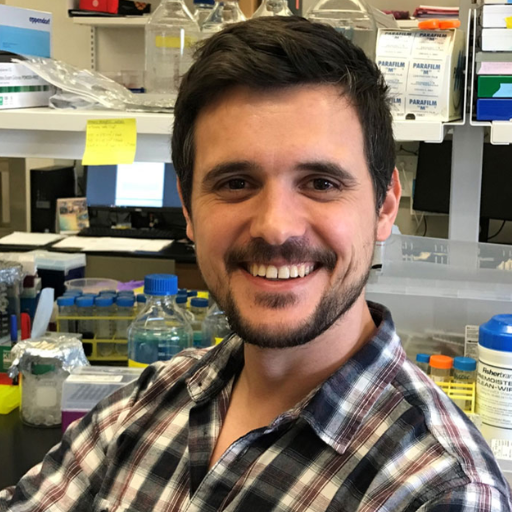Is the Niacin Receptor HCAR2 Protective in Alzheimer's Disease?

About the Research Project
Program
Award Type
Postdoctoral Fellowship
Award Amount
$200,000
Active Dates
July 01, 2022 - June 30, 2024
Grant ID
A2022017F
Mentor(s)
Gary Landreth, PhD, Indiana University
Goals
Study the therapeutic potential of the niacin receptor HCAR2 in Alzheimer’s disease.
Summary
Aim 1- We will investigate the role of HCAR2 on microglia response in a mouse model of amyloid deposition (5xFAD) followed by tau pathology, which mimics the natural disease progression in patients with Alzheimer’s disease. HCAR2 will be inactivated at different stages of disease to better understand its role in pathology. Aim 2- We will test if Niaspan® treatment is beneficial in 5xFAD mice exhibiting combined amyloid and tau pathologies, which will mimic advanced stages of Alzheimer’s disease, and if Niaspan® effects are through microglial HCAR2.
This proposal focuses on a novel therapeutic strategy for Alzheimer’s disease (AD) tailored to potentiate microglia neuroprotective actions through the stimulation of HCAR2. The pharmacological activation of HCAR2 with the FDA-approved formulation of niacin, Niaspan, will be tested in a mouse model with robust amyloid and tau pathologies, mimicking advanced and symptomatic stages of AD. This strategy takes advantage of the endogenous induction of HCAR2 by microglia in AD which sensitizes these cells to the actions of HCAR2 ligands, such as niacin. The successful accomplishment of this project will further our understanding about the beneficial modulation of microglia in Alzheimer’s disease (AD). If, as expected, our results support HCAR2 as viable therapeutic target in the context of widespread amyloid and tau pathologies, it will open novel research avenues for therapeutic strategies in AD. Importantly, HCAR2 can be pharmacologically activated by FDA-approved drugs, such as Niaspan, which can be rapidly repurposed for human trials and perhaps clinical use.
Unique and Innovative
This proposal focuses on a novel therapeutic strategy for Alzheimer’s disease (AD) tailored to potentiate microglia neuroprotective actions through the stimulation of HCAR2. The pharmacological activation of HCAR2 with the FDA-approved formulation of niacin, Niaspan, will be tested in a mouse model with robust amyloid and tau pathologies, mimicking advanced and symptomatic stages of AD. This strategy takes advantage of the endogenous induction of HCAR2 by microglia in AD which sensitizes these cells to the actions of HCAR2 ligands, such as niacin.
Foreseeable Benefits
The successful accomplishment of this project will further our understanding about the beneficial modulation of microglia in Alzheimer’s disease (AD). If, as expected, our results support HCAR2 as viable therapeutic target in the context of widespread amyloid and tau pathologies, it will open novel research avenues for therapeutic strategies in AD. Importantly, HCAR2 can be pharmacologically activated by FDA-approved drugs, such as Niaspan, which can be rapidly repurposed for human trials and perhaps clinical use.
Grants
Related Grants
Alzheimer's Disease Research
Partnership with Molecular Neurodegeneration Open Access Journal
Active Dates
July 01, 2010 - June 30, 2015

Principal Investigator
Guojun Bu, PhD
Partnership with Molecular Neurodegeneration Open Access Journal
Active Dates
July 01, 2010 - June 30, 2015

Principal Investigator
Guojun Bu, PhD
Alzheimer's Disease Research
Identifying Women-Specific and Men-Specific Risk Factors for Alzheimer’s Disease
Active Dates
July 01, 2022 - June 30, 2024

Principal Investigator
Gael Chetelat, PhD
Identifying Women-Specific and Men-Specific Risk Factors for Alzheimer’s Disease
Active Dates
July 01, 2022 - June 30, 2024

Principal Investigator
Gael Chetelat, PhD
Alzheimer's Disease Research
Mitochondrial Prodrug to Treat Repeated Mild Traumatic Brain Injury
Active Dates
September 08, 2021 - December 31, 2023

Principal Investigator
Patrick Sullivan, PhD
Mitochondrial Prodrug to Treat Repeated Mild Traumatic Brain Injury
Active Dates
September 08, 2021 - December 31, 2023

Principal Investigator
Patrick Sullivan, PhD



